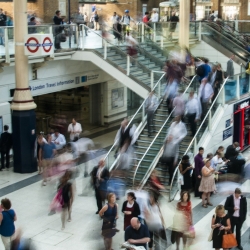To provide the best experiences, we use technologies like cookies to store and/or access device information. Consenting to these technologies will allow us to process data such as browsing behaviour or unique IDs on this site. Not consenting or withdrawing consent, may adversely affect certain features and functions.
The technical storage or access is strictly necessary for the legitimate purpose of enabling the use of a specific service explicitly requested by the subscriber or user, or for the sole purpose of carrying out the transmission of a communication over an electronic communications network.
The technical storage or access is necessary for the legitimate purpose of storing preferences that are not requested by the subscriber or user.
The technical storage or access that is used exclusively for statistical purposes.
The technical storage or access that is used exclusively for anonymous statistical purposes. Without a subpoena, voluntary compliance on the part of your Internet Service Provider, or additional records from a third party, information stored or retrieved for this purpose alone cannot usually be used to identify you.
The technical storage or access is required to create user profiles to send advertising, or to track the user on a website or across several websites for similar marketing purposes.
 UK employees are suffering higher cost-of-living expenses, especially due to transportation costs and tensions may rise as many companies enforce return-to-office policies. That is according to the latest study conducted by Capterra on 248 U.K. employees, the majority (69 percent) say their work-related costs have increased over the past 12 months, especially the price of groceries (95 percent), utilities (85 percent), eating out (78 percent), and petrol (63 percent). (more…)
UK employees are suffering higher cost-of-living expenses, especially due to transportation costs and tensions may rise as many companies enforce return-to-office policies. That is according to the latest study conducted by Capterra on 248 U.K. employees, the majority (69 percent) say their work-related costs have increased over the past 12 months, especially the price of groceries (95 percent), utilities (85 percent), eating out (78 percent), and petrol (63 percent). (more…)










 While workers in the UK have been working from home, if they can, for almost a year, a third say they miss commuting, claims research from recruiter
While workers in the UK have been working from home, if they can, for almost a year, a third say they miss commuting, claims research from recruiter 
 Each flexible coworking space created in a smaller town or suburban area reduces carbon emissions by an average of 118 tonnes a year thanks to shorter commutes, an international
Each flexible coworking space created in a smaller town or suburban area reduces carbon emissions by an average of 118 tonnes a year thanks to shorter commutes, an international 













May 12, 2022
From commuting to computers, finding balance in the hybrid workplace
by Anni Hallila • Comment, Flexible working, Wellbeing